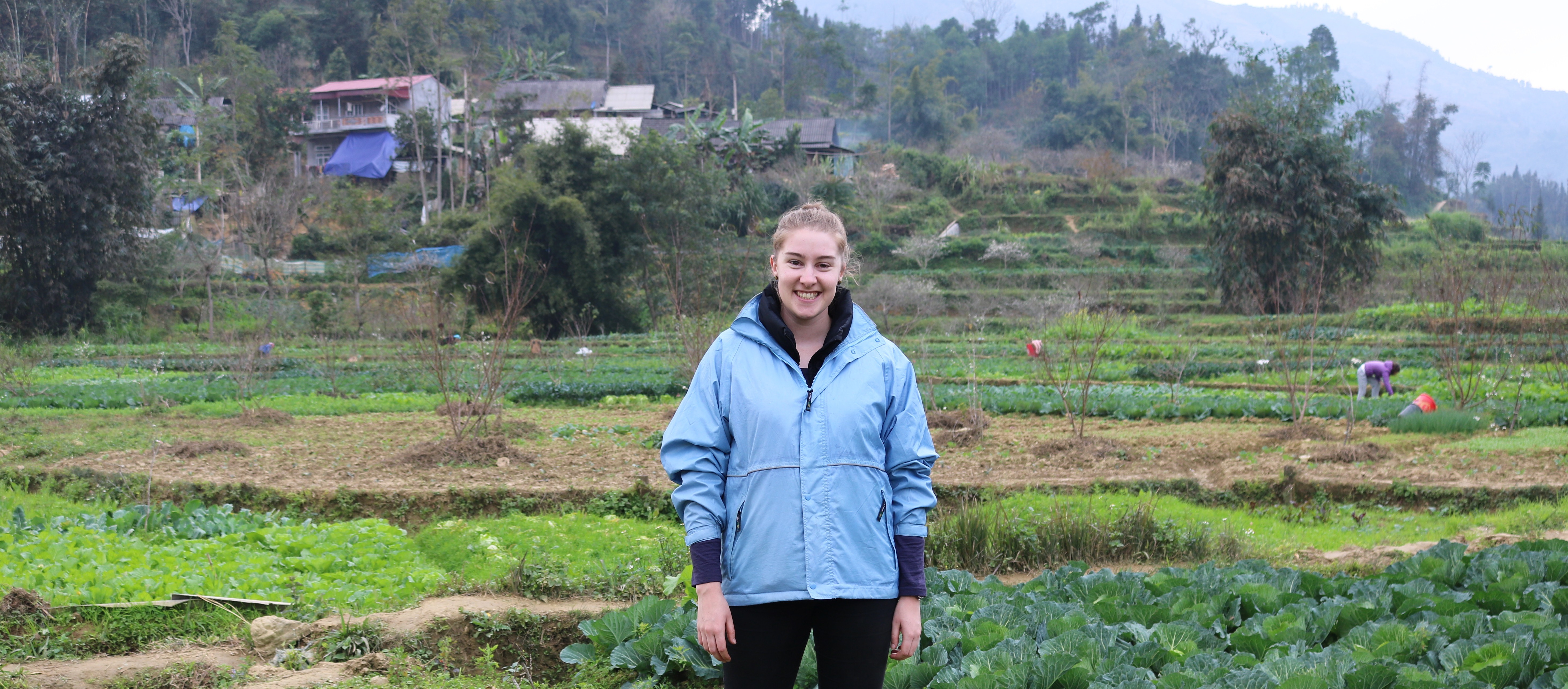

Getting the #nextgen into international agricultural research for development
December 9, 2019
Further to earlier blogs with advice around breaking into agriculture for development, we are also arranging a number of events around the country. Most recently, Nikki Dumbrell kindly agreed to speak at a meeting of high school teachers and has provided us this blog about the advice she gave them to help them advise and inspire their students.
Nikki is a PhD student and The University of Adelaide’s Centre for Global Food and Resources (GFAR). Prior to her PhD, Nikki worked on ACIAR projects in Vietnam, Laos and Cambodia, and was a Crawford Fund Scholar in 2015.

On Monday 2 December 2019 I spoke at a Primary Industries Education Foundation Australia (PIEFA) Food, Fibre and Foliage Workshop for high school teachers in Adelaide.
I was given the opportunity as a member of RAID, as part of the Crawford Fund’s boost to its efforts to promote international agricultural research opportunities to the next generation (‘nextgen’). My brief was to speak about opportunities for the next generation to fight poverty and malnutrition around the globe.
To give this presentation I tried to think about the things that I might have wanted to know when I was in high school, and what would fit in the short time frame for the presentation. I decided on four key messages – a mix of practical, lifestyle and interest-based features of a career in international agricultural research.
- Tackling global challenges
Best estimates are that Australia produces enough food to feed about 60 million people each year. However, Ian Chubb in his tenure as Chief Scientist, is credited with saying Australian agricultural know-how feeds 400 million people each year. Knowledge, skills and experience that exist in Australia, if shared, can be an important contribution to the international community. This will continue to be the case as we face the significant challenge of using (wasting) fewer resources to supply a growing population with enough affordable and nutritious food. It is my opinion that students who want to be global citizens, and apply their knowledge and skills to tackling global issues, could thrive in a career in international agricultural research.
- Multiple and flexible career pathways
Working on international agricultural research projects (ACIAR projects in Vietnam, and Cambodia and Laos), I have worked with people employed by: (1) government departments and institutions; (2) non-government organisations; (3) universities; and (4) the private sector. I have also worked with Australians who live in Australia (in the city and regions) and others who live overseas. Flexibility to choose where to live, and the opportunity to travel the world is very appealing, and very possible in a career in international agricultural research. What could be more exciting for someone trying to picture what their life could be like in the 10 years after leaving school!
- For specialists or generalists
International agricultural research for development is a rewarding career for people who are ‘specialists’ in their field, or ‘generalists’ (people that are good at or interested in lots of things). For example it is a place where you can combine in-depth expertise in one of, or, cross-disciplinary interests in more than one of the following:
- Animal and veterinary science
- Plant biology
- Soil science
- Geography
- Economics
- Policy
- Nutrition
- Fisheries
- Forestry
- Irrigation infrastructure and technology
- Agricultural engineering
- Social justice
- Gender dynamics
- Food
- Languages
- Science communication
- Instagram-able photos
Rather than being an option at the end of an agricultural science degree, international agricultural research could be a career at the end of a university degree in any one of the above areas (except the Instagram one!). It is especially a career option for students who get involved before graduation. This leads to my next point.
- Get your foot in the door
In my experience, international agricultural research is an ‘in-crowd’ – getting started is the hardest bit. Initiatives like those of the Crawford Fund and RAID are helping students and early career researchers get started. For example, the Crawford Fund student awards are one way to get involved before graduating from university. Check out the student awards here. Also, in 2020 the Crawford Fund plans to release new food and nutrition security resources for school teachers on the Primezone website. Few things were more important to me in my school years than knowing how and where the knowledge I acquired in the classroom was relevant in the real world. International agricultural research is very rewarding in this sense.




